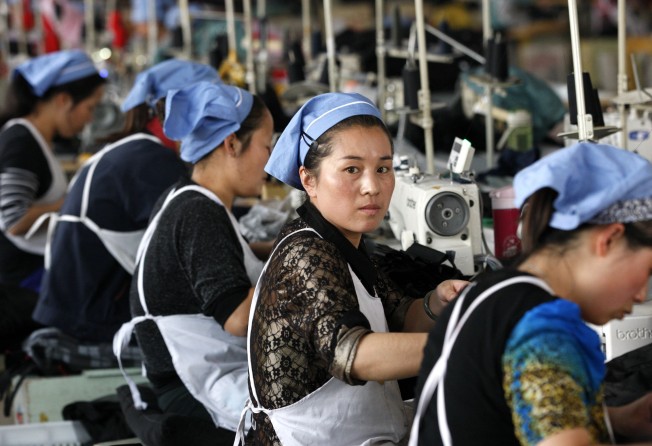Mainland China’s government must set standard on fighting gender discrimination
A Human Rights Watch report has found no improvement in gender discrimination in the mainland Chinese job market and workplace. And the government is sending the wrong signals to the private sector with an increasing percentage of civil service jobs specified as being ‘men only’, ‘men preferred’ or ‘suitable for men’

In terms of women’s rights, mainland China’s relaxation of the one-child policy more than two years ago has had the perverse effect of making many employers even more reluctant to hire women because of concerns they might exercise their statutory entitlement to maternity leave not just once, but twice.
As a result some bosses have been prompted to ask job applicants direct questions about marital and child status that would be considered unacceptable elsewhere.
This is one example in a new report by Human Rights Watch (HRW) that found no improvement in gender discrimination in the mainland Chinese job market and workplace. On the contrary, it seems to be getting worse in gender participation and parity, according to HRW executive director Kenneth Roth.
To places like Hong Kong, where equal opportunity laws date back to the 1990s, some sexist employment practices on the mainland beggar belief in the 21st century, and would even be funny on occasion if they were not so serious.
In singling out several tech companies for advertising jobs reserved for men, the report – based on analysis of 36,000 job ads from 2013 to this year – took them to task for objectifying women in recruitment campaigns that boasted of beautiful female employees to attract male applicants.
The companies have since reaffirmed policies on workplace equality and where appropriate have undertaken to improve compliance.
Discrimination generally ranged from women simply being denied consideration to demands they conform with certain physical traits.
In Hebei province, an advertisement for women train conductors stipulated a maximum weight (65kg), “normal” facial features and “good skin tone”, among other requirements.
A survey last year by job platform Zhaopin found that 22 per cent of mainland Chinese women claimed to have suffered severe discrimination when seeking employment.
Far from setting a good example, the government is sending the wrong signals to the private sector, with 13 per cent of the jobs on last year’s national civil service list specifying “men only”, or “men preferred” or “suitable for men”.
This year the figure has risen to 19 per cent. Perhaps the mainland is lagging behind the times for cultural reasons. After all, before the establishment of the Equal Opportunities Commission (EOC), Hong Kong employers were guilty of similar discrimination, including age limits.
The example of Hong Kong before the EOC’s establishment suggests the elimination of discrimination involves a high-profile educational process.
Mainland China does not have a similar watchdog and its regulations are not that well developed, which means education to change attitudes will take time. The HRW report at least arouses awareness and puts the ball in the government’s court.